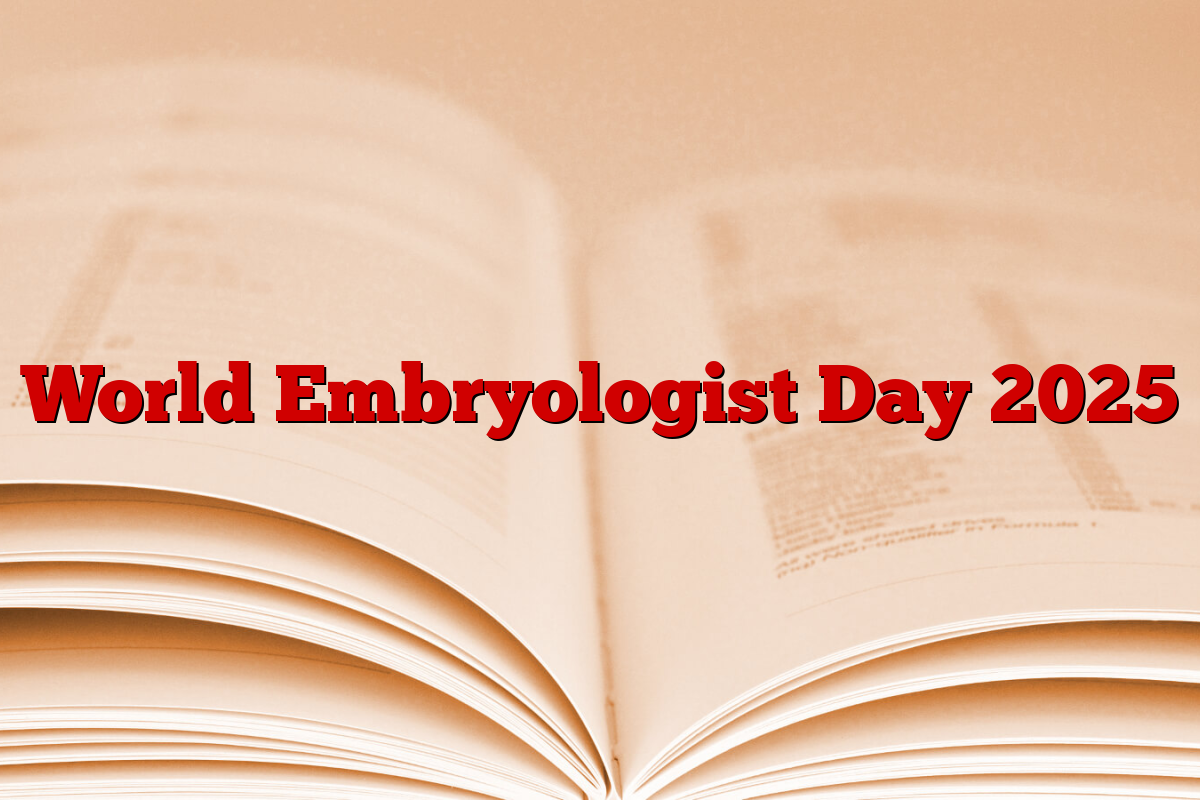Every year on 25 JulyThe world respects the pioneers of reproductive science World Fetalist Day, also known as World IVF Day. This date marks a revolution in reproductive medicine, Remembering the birth of Lewis Brown, The first child born through in vitro fertilization (IVF)And salute the unseeded heroes who turn on hope in life in breeding laboratories around the world.
World Fetalist Day 2025
World fetalist dayalso known as World IVF Day, Is seen annually 25 July Worldwide. This global healthcare event respects the achievements and contributions of professionals in breeding and reproduction. On this day, medical researchers and embryology experts conduct seminars, workshops and awareness campaigns to share the latest progression in aided reproductive technologies and promote informed dialogues around infertility treatment.
History of World Fetalist Day 2025
World fetalist dayCelebrated 25 JulyLewis Joy respects brown’s birth, the first child was born IVF (in in vitro fertilization) In Oldham in 1978, in UKPrior to this success, there were some options in infertility joints. The birth of Lewis showed that science can help people become parents in a new way. This milestone was made possible by hard work Dr. Robert Edwards (A reproductive scientist), Dr. Patrical stations (A female health surgeon), and Nurse gene perdiWho managed fetal development in the laboratory.
Topic of World Fetalist Day 2025
World Fetalist Day 2025 Is Celebrated every year on 25 July To honor the achievements of scientists, doctors and fetalists in the field of reproductive treatment. Increases awareness about the day Infertility And highlights the importance of safe, inexpensive and accessible IVF option worldwideWhile the official subject for this year is yet to be announced, the focus remains on support Branch Through innovation.
Importance of World Fetalist Day 2025
The importance here is given below.
Global importance
- In 1978, the first IVF children were celebrated on 25 July to mark the birth of Lewis Joy Brown.
- In reproductive therapy recognizes a milestone that changed the future of reproductive care.
Fetch
- IVF appreciates the back experts helping to create life in labs.
- Eggs and sperm handling, fetal development and their role in genetic testing were highlighted.
raising awareness
- Educates the public about infertility, its causes, and available remedies.
- Encouraged open interactions to reduce stigma around assisted breeding.
Promote innovation
- The IVF and ART (aided reproductive technologies) demonstrate progress.
- For all, moral, safe and accessible reproductive care supports.
Impact on families
- IVF has helped bring more than 8 million infants to the world.
- Grands the right to preserve fertility and plans future pregnancies to single parents and cancer people.
IVF Yatra from 1978 to 2025
1978: The world’s first IVF baby, Lewis Joy Brown, is born in the UK, proving that science can help children to help children when nature cannot do it.
1980 -1990s: IVF improves and spreads. Doctors introduce ICSI to male infertility and learn to freeze the fetus for later use.
-2000: IVF becomes more successful with better laboratories, blastocyst techniques and genetic testing to check fetal health.
2010: Dr. Robert Edwards, who helped create IVF, win the Nobel Prize to help making medical history and become millions of parents.
2020s: IVF becomes more advanced with AI technology, and more people in small cities including India gain access to reproductive care.
2025: More than 8 million infants have been born through IVF. Clinic and families celebrate the progress of decades and hope on World Fetalist Day, celebrating every 25 July.

